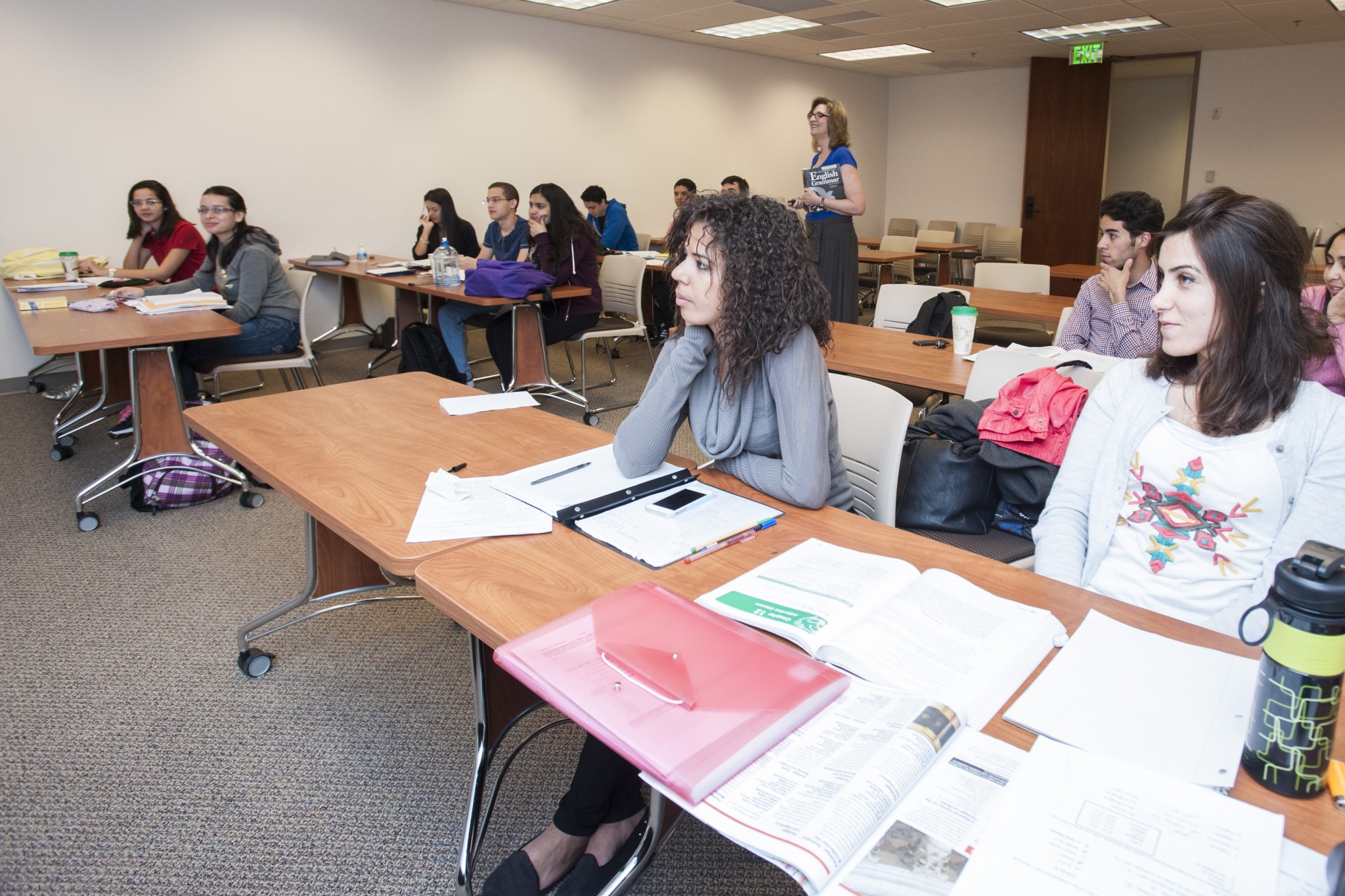
Can you understand English while watching movies but find it difficult to communicate with native speakers? Do you find it difficult to use phrasal verbs and expressions? Do you struggle with a limited vocabulary?
Increasingly, students are discovering that undertaking an intensive English program in the U.S. is the right choice prior to beginning their studies. In fact, what better place than the “land of opportunity” to improve your English, experience U.S. culture and make lifelong friendships, all while doing something that will significantly enhance your university studies and future career.
Any non-native English speaker looking to succeed at a U.S. university should carefully consider completing an intensive English language program (IEP). Taking the time to improve your English language skills (speaking, listening, reading and writing) will help you achieve a higher TOEFL or IELTS score, opening up more universities and fields of study to choose from. Completing a course will also enable students to have a much easier time in class and a more enriched and fulfilling education.

In fact, learning English could mean that you earn some 30 to 50 percent more than your non-speaking contemporaries in the job market, according to Dinero magazine, making an intensive English course a worthwhile investment.
With so many courses on offer, the choice of programs can be rather daunting. Read on to find out about some of the factors you should consider when choosing your intensive English program:
Why do I want to learn English?
Deciding which course is the best for your requirements can be a difficult decision, and is likely to depend on your current level of English and your overall goals. Are you looking to live on campus and take part in all of the activities and sports on offer? Would you like to brush up specifically on your academic English? Or will a more flexible English program – including business and trade vocabulary – tick all of the boxes? It is worth doing your homework prior to choosing a course.
Admission requirements: TOEFL or IELTS?
When choosing a U.S. university or college the entrance requirements will vary. Most institutions will require that students achieve a minimum score in either the TOEFL or IELTS English language examinations.
Jinny Kim’s parents brought her to the U.S. from Korea when she was 13 years old because they wanted her to have a…
Posted by Kennesaw State University on Tuesday, 12 May 2015
The TOEFL test measures students’ ability to use and understand English at university level. The test evaluates how well you combine your listening, reading, speaking and writing skills to perform academic tasks. The IELTS testing system, which is used for educational, immigration and occupational purposes, is the world’s most popular English language test for higher education admissions. Most IEPs and universities will accept both.
Where and when?
Most U.S institutions offer international students the chance to enrol in a full-time intensive English program, with many students going on to achieve a degree at that institution. Programs must meet a minimum of 18 hours per week for students to qualify for a student visa. Most intensive programs provide students with 20–25 hours per week of classroom teaching time, with enrolment at the beginning of each semester. Don’t forget that intensive English programs are not usually part of the college or university’s academic degree programs, so you may or may not receive academic credit.

Business or pleasure?
Students must also decide what type of course best suits their needs. Are they purely looking to learn a more academic type of English or will other modules, including media studies, literature and American culture, also be of interest? With so many courses on offer students shouldn’t be intimidated – there is a course to suit each and every budget and requirement.
Choosing the right intensive English program shouldn’t be an overwhelming decision, but it is worth considering the above factors prior to choosing the right program for you. With areas such as study skills, note taking and even debating covered by many intensive English programs, students can get ahead and feel much more confident even before beginning their degree programs. Universities will be happy to offer help and advice to international students, with bursaries and scholarships also on offer – all you have to do is ask.
______________________________
This article was sponsored by Kennesaw State University. The Kennesaw Intensive English Program (IEP) offers a range of courses from beginner through advanced classes in English to prepare ESL students for university study at institutions across the U.S. Kennesaw offers a variety of full-time and part-time schedules lasting eight weeks at the Kennesaw State University’s main campus in northwest Atlanta. Vocabulary and idioms as well as modules in core skills (speaking, reading, listening and writing) form part of the programs on offer to students. With small class sizes and increased teacher-student contact time, students can benefit from the unique learning experience that Kennesaw offers. Students who complete Level 6 of the IEP at Kennesaw State University are exempt from the TOEFL as admission requirement to apply to become a student at the University. The beautiful campus surroundings in stunning Georgia mean that ESL students will soon slot in to Kennesaw’s warm and welcoming all-American campus life.







